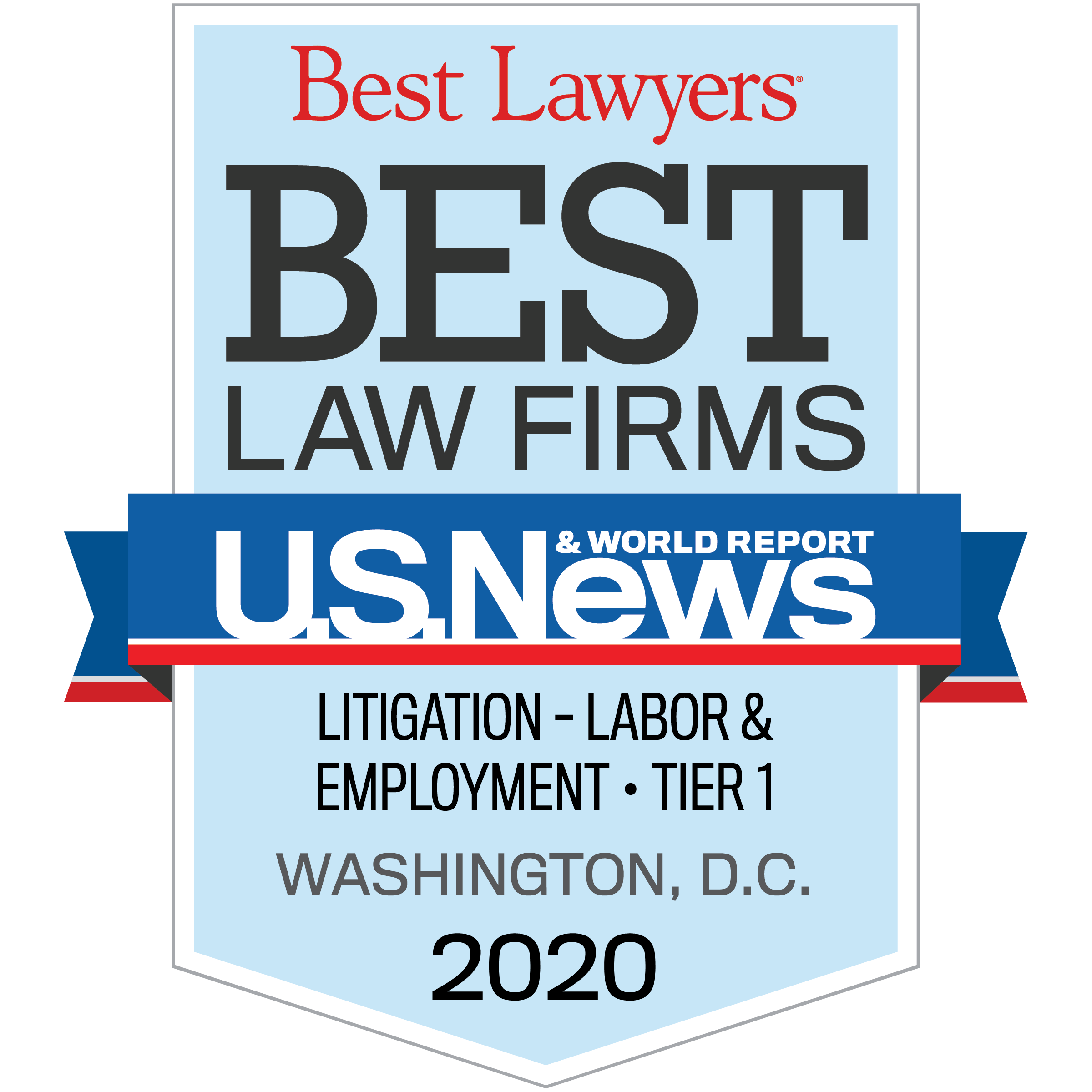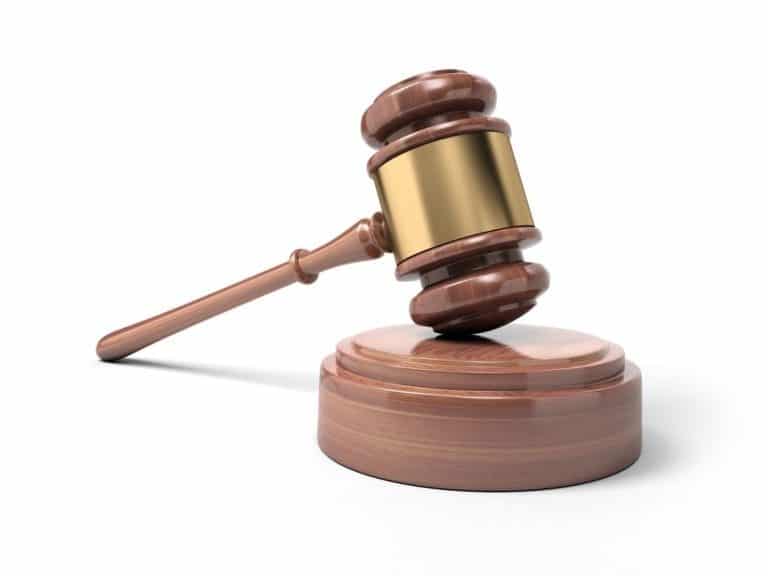The “contributing factor” causation standard is favorable for whistleblowers. The words “a contributing factor” mean any factor which, alone or in connection with other factors, tends to affect in any way the outcome of the personnel decision. Marano v. Dept. of Justice, 2 F.3d 1137, 1140 (Fed. Cir.1993). A whistleblower can establish a prima facie case that their protected activity was a contributing factor in the adverse action by circumstantial evidence, including:
- temporal proximity;
- indications of pretext;
- inconsistent application of an employer’s policies;
- an employer’s shifting explanations for its actions;
- antagonism or hostility toward a complainant’s protected activity;
- the falsity of an employer’s explanation for the adverse action taken; or
- a change in the employer’s attitude toward the whistleblower after they engage in protected activity.
The following whistleblower protection laws administered by the Department of Labor employ the contributing factor causation standard:
- The 1992 amendments to the Energy Reorganization Act (“ERA”)amendments and Energy Policy Act of 2005 (“EPA”) (U.S. government and corporate nuclear workers), 42 U.S.C. §5851(b)(3) ( L. 93-438, Title II, §211, formerly §210, as added Pub. L. 95-601, §10, Nov. 6, 1978, 92 Stat. 2951; renumbered §211 and amended Pub. L. 102-486, Title XXIX, §2902(a) to (g), (h)(2), (3), Oct. 24, 1992, 106 Stat. 3123, 3124; Pub. L. 109-58, Title VI, §629, Aug. 8, 2005, 119 Stat. 785.) (Current through Pub. L. 117-24 with the exception of Pub. L. 116-283, Div. A, Title XVIII, which takes effect January 1, 2022);
- Federal Rail Safety Act (“FRSA”) (U.S. rail workers) 49 U.S.C. §20109(c)(2)(A)(i) ( L. 103-272, §1(e), July 5, 1994, 108 Stat. 867; Pub. L. 110-53, Title XV, §1521, Aug. 3, 2007, 121 Stat. 444; Pub. L. 110-432, Div. A, Title IV, §419, Oct. 16, 2008, 122 Stat. 4892.) (Current through Pub. L. 117-24 with the exception of Pub. L. 116-283, Div. A, Title XVIII, which takes effect January 1, 2022);
- National Transit Systems Security Act (“NTSSA”) (U.S. public transportation) 6 U.S.C. §1142(c)(2)(B) ( L. 110-53, Title XIV, §1413, Aug. 3, 2007, 121 Stat. 414.) (Current through Pub. L. 117-24 with the exception of Pub. L. 116-283, Div. A, Title XVIII, which takes effect January 1, 2022);
- Consumer Product Safety Improvement Act (“CPSIA”) (U.S. corporate retail products) 15 U.S.C. §2087 (b)(2)(B), (b)(4) ( L. 92-573, §40, as added Pub. L. 110-314, Title II, §219(a), Aug. 14, 2008, 122 Stat. 3062.) (Current through Pub. L. 117-24 with the exception of Pub. L. 116-283, Div. A, Title XVIII, which takes effect January 1, 2022);
- Surface Transportation and Assistance Act (“STAA”) (U.S. corporate trucking industry) 49 S.C. §31105(b)(1) (Pub. L. 103-272, §1(e), July 5, 1994, 108 Stat. 990; Pub. L. 110-53, Title XV, §1536, Aug. 3, 2007, 121 Stat. 464.) (Current through Pub. L. 117-24 with the exception of Pub. L. 116-283, Div. A, Title XVIII, which takes effect January 1, 2022);
- Patient Protection and Affordable Care Act (“PPACA”, “ACA” or “Obamacare”), Pub. L. 111-148, sec. l558(b)(2) (111th, 2d Sess.), 124 Stat. 119 through 124 Stat. 1025 (Current through Pub. L. 117-12);
- Food Safety Modernization Act (“FSMA”) (U.S. food industry) 21 S.C.§399(d) (June 25, 1938, c. 675, §1013, formerly §1012, as added Pub. L. 111-353, Title IV, §402, Jan. 4, 2011, 124 Stat. 3968; renumbered §1013, Pub. L. 114-255, Div. A, Title III, §3073(b)(1), Dec. 13, 2016, 130 Stat. 1137.) (Current through Pub. L. 117-24 with the exception of Pub. L. 116-283, Div. A, Title XVIII, which takes effect January 1, 2022);
- Moving Ahead for Progress in the 21st Century Act (“MAP 21”), 49 S.C.§30171(b)(2)(B), (c)(3) (Added Pub. L. 112-141, Div. C, Title I, §31307(a), July 6, 2012, 126 Stat. 765.) (Current through Pub. L. 117-24 with the exception of Pub. L. 116-283, Div. A, Title XVIII, which takes effect January 1, 2022);
- Pipeline Safety Improvement Act (“PSIA”), 49 U.S.C. §60109 ( L. 103-272, §1(e), July 5, 1994, 108 Stat. 1315; Pub. L. 103-429, §6(75), Oct. 31, 1994, 108 Stat. 4388; Pub. L. 104-304, §§7, 20(i), Oct. 12, 1996, 110 Stat. 3800, 3805; Pub. L. 107-355, §14(a), (b), Dec. 17, 2002, 116 Stat. 3002, 3005; Pub. L. 109-468, §§9, 14, 16, Dec. 29, 2006, 120 Stat. 3493, 3496; Pub. L. 112-90, §§5(e), 22, Jan. 3, 2012, 125 Stat. 1908, 1917; Pub. L. 114-183, §§19(a), 25, June 22, 2016, 130 Stat. 527, 530; Pub. L. 116-260, Div. R, Title I, §§108(b)(1), 120(b), (d), 122, Title II, §202(a), Dec. 27, 2020, 134 Stat. 2223, 2235, 2236, 2237.) (Current through Pub. L. 117-24 with the exception of Pub. L. 116-283, Div. A, Title XVIII, which takes effect January 1, 2022);
- Seaman’s Protection Act (“SPA”), 46 S.C. §2114(b) (Added Pub. L. 98-557, §13(a), Oct. 30, 1984, 98 Stat. 2863; amended Pub. L. 107-295, Title IV, §428, Nov. 25, 2002, 116 Stat. 2127; Pub. L. 111-281, Title VI, §611(a), Oct. 15, 2010, 124 Stat. 2969.) (Current through Pub. L. 117-24 with the exception of Pub. L. 116-283, Div. A, Title XVIII, which takes effect January 1, 2022);
- Consumer Financial Protection Act (“CFPA”), 12 U.S.C. §5567 ( L. 111-203, Title X, §1057, July 21, 2010, 124 Stat. 2031.) (Current through Pub. L. 117-24 with the exception of Pub. L. 116-283, Div. A, Title XVIII, which takes effect January 1, 2022);
- Taxpayer First Act (“TFA”), 26 U.S.C. §7623(d) (Aug. 16, 1954, c. 736, 68A Stat. 904; L. 94-455, Title XIX, §1906(b)(13)(A), Oct. 4, 1976, 90 Stat. 1834; Pub. L. 104-168, Title XII, §1209(a), July 30, 1996, 110 Stat. 1473; Pub. L. 109-432, Div. A, Title IV, §406(a)(1), Dec. 20, 2006, 120 Stat. 2958; Pub. L. 115-123, Div. D, Title II, §41108(a) to (c), Feb. 9, 2018, 132 Stat. 158; Pub. L. 116-25, Title I, §1405(b), July 1, 2019, 133 Stat. 998.) Current through Pub. L. 117-24 with the exception of Pub. L. 116-283, Div. A, Title XVIII, which takes effect January 1, 2022;
- Criminal Antitrust Anti-Retaliation Act (“CAARA”), 15 U.S.C. §7a-3 ( L. 108-237, Title II, §216, as added Pub. L. 116-257, §2, Dec. 23, 2020, 134 Stat. 1147.) (Current through Pub. L. 117-24 with the exception of Pub. L. 116-283, Div. A, Title XVIII, which takes effect January 1, 2022); and
- Anti-Money Laundering Act (“AMLA”), 31 U.S.C. §5323(g) & (j) (Added L. 98-473, Title II, §901(e), Oct. 12, 1984, 98 Stat. 2135; amended Pub. L. 116-283, Div. F, Title LXIII, §6314(a), Jan. 1, 2021, 134 Stat. 4598.) (Current through Pub. L. 117-24 with the exception of Pub. L. 116-283, Div. A, Title XVIII, which takes effect January 1, 2022).
Congress also included the same burdens of proof in three corporate whistleblower laws not administered by the Department of Labor:
- The American Recovery and Reinvestment Act of 2009 (“ARRA”) (U.S. Stimulus Law) Pub. L. 111-5, Section 1553(c)(l); and
- Two provisions of the National Defense Authorization Act of 2013, L. 112-139, sections 827, 28, (111th Cong., 2d Sess.), 10 U.S.C. §2409(c)(6) (Added Pub. L. 99-500, Title I, §101(c)[Title X, §942(a)(1)], Oct. 18, 1986, 100 Stat. 1783-82, 1783-162; Pub. L. 99-591, Title I, §101(c) [Title X, §942(a)(1)], Oct. 30, 1986, 100 Stat. 3341-82, 3341-162; Pub. L. 99-661, Div. A, Title IX, formerly Title IV, §942(a)(1), Nov. 14, 1986, 100 Stat. 3942; renumbered Title IX, Pub. L. 100-26, §3(5), Apr. 21, 1987, 101 Stat. 273; amended Pub. L. 102-25, Title VII, §701(k)(1), Apr. 6, 1991, 105 Stat. 116; Pub. L. 102-484, Div. A, Title X, §1052(30)(A), Oct. 23, 1992, 106 Stat. 2500; Pub. L. 103-355, Title VI, §6005(a), Oct. 13, 1994, 108 Stat. 3364; Pub. L. 104-106, Div. D, Title XLIII, §4321(a)(10), Feb. 10, 1996, 110 Stat. 671; Pub. L. 110-181, Div. A, Title VIII, §846, Jan. 28, 2008, 122 Stat. 241; Pub. L. 112-239, Div. A, Title VIII, §827(a) to (f), Jan. 2, 2013, 126 Stat. 1833; Pub. L. 113-291, Div. A, Title VIII, §856, Title X, §1071(c)(10), Dec. 19, 2014, 128 Stat. 3460, 3509; Pub. L. 114-261, §1(a)(1), Dec. 14, 2016, 130 Stat. 1362.) Current through Pub. L. 117-24 with the exception of Pub. L. 116-283, Div. A, Title XVIII, which takes effect January 1, 2022) and 41 U.S.C. §4712(c)(6) (Added Pub. L. 112-239, Div. A, Title VIII, §828(a)(1), Jan. 2, 2013, 126 Stat. 1837; amended Pub. L. 113-66, Div. A, Title X, §1091(e), Dec. 26, 2013, 127 Stat. 876; Pub. L. 114-261, §1(a)(2), (3)(A), Dec. 14, 2016, 130 Stat. 1362; Pub. L. 116-260, Div. U, Title VIII, §801, Dec. 27, 2020, 134 Stat. 2297.) (Current through Pub. L. 117-24 with the exception of Pub. L. 116-283, Div. A, Title XVIII, which takes effect January 1, 2022).
Zuckerman Law Amicus Curiae Brief Filed on Behalf of Senator Wyden and Representative Speier Clarifying the Contributing Factor Causation Standard
In July 2021, whistleblower protection law firm Zuckerman Law filed this amicus curiae brief in the Second Circuit concerning the appropriate causation standard under federal whistleblower protection laws.
AMICUS CURIAE BRIEF OF SENATOR RON WYDEN AND REPRESENTATIVE JACKIE SPEIER AND IN SUPPORT OF THE PLAINTIFF-APPELLEE-CROSS-APPELLANTWhistleblower Retaliation Law Firm

In 2019, the National Law Review awarded Jason Zuckerman its “Go-To Thought Leadership Award” for his analysis of developments in whistleblower law. We represent whistleblowers nationwide.
Click here to read reviews of our whistleblower retaliation lawyers from clients that we have represented in whistleblower rewards and whistleblower retaliation matters. We handle claims under a variety of whistleblower laws, including the following:
- Sarbanes-Oxley Act (protecting whistleblower disclosures about violations of SEC rules and regulations; violations of federal laws related to fraud against shareholders; or mail, wire, bank or securities fraud). Download our free ebook, Sarbanes-Oxley Whistleblower Protection: Robust Protection for Corporate Whistleblowers.
- Taxpayer First Act (protecting whistleblowing about tax fraud or tax underpayment)
- Dodd-Frank Act (protecting whistleblowing to the SEC and CFTC)
- Whistleblower Protection Act (protecting whistleblowers in the federal government)
- False Claims Act and NDAA (protecting whistleblowers working for federal contractors)
- Energy Reorganization Act (protecting disclosures about nuclear safety or violations of Nuclear Regulatory Commission rules)
- Wendell H. Ford Aviation Investment and Reform Act for the 21st Century (protecting disclosures about aviation safety)
- Surface Transportation Assistance Act (protecting whistleblower disclosures in the trucking industry about commercial motor vehicle safety)
- Consumer Financial Protection Act (protecting disclosures concerning consumer financial protection)
- Anti-Money Laundering Whistleblower Protection Law (protecting disclosures about violations of the Bank Secrecy Act)
- Federal Railroad Safety Act (protecting disclosures about rail safety and security)
- National Transit Systems Security Act (protecting transit employees from retaliation for disclosing a hazardous safety or security condition)
- Consumer Product Safety Improvement Act (protecting disclosures about consumer product safety)
- Food Safety Modernization Act (FSMA) (protecting disclosures about food safety)
- Criminal Antitrust Anti-Retaliation Act (protecting disclosures about criminal antitrust violations)
- Whistleblowers that have suffered retaliation in violation of whistleblower protection policies in corporate codes of ethics.








